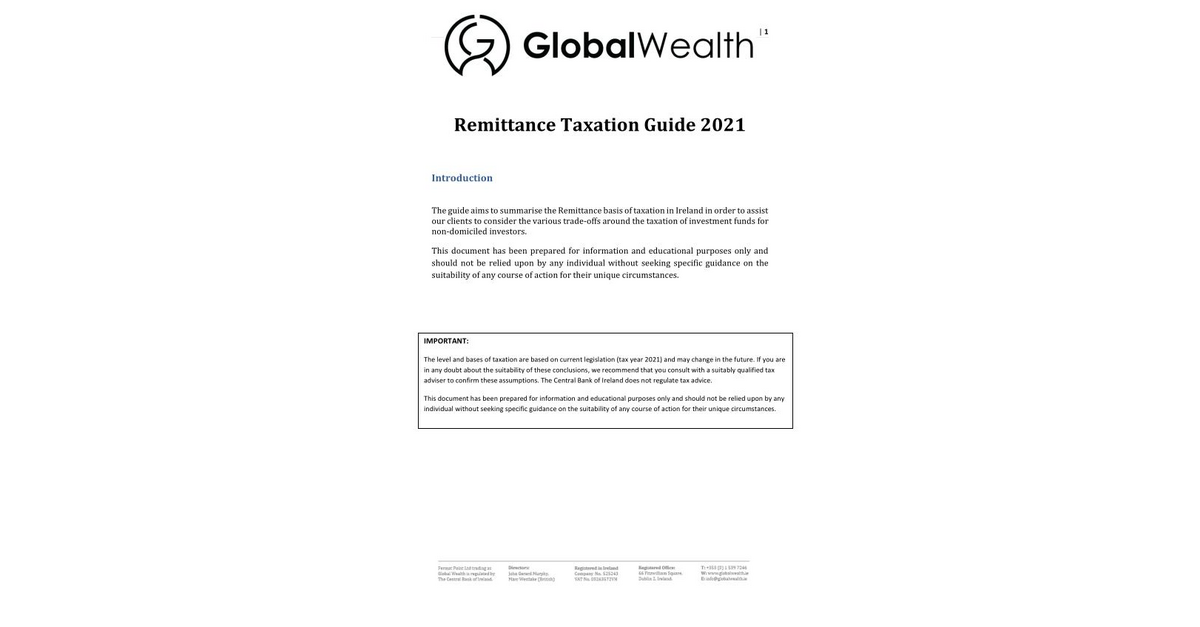Hi,
I am confused about the necessity of filing tax return in my situation. I would really appreciate your help about this.
I am a non-domiciled(non-Irish), Irish resident for the last 2 years and have not filed a tax return yet. I have foreign bank and trading accounts that were opened before I came to Ireland. I have foreign income arising from cfd's, shares, fx pairs and commodities trading. I have no other income and the foreign income have never been remitted to Ireland. My partner is a PAYE employee and we only use the money earned by my partner for expenses arising in Ireland. So, my questions are:
1) Do I need to file for tax even though I do not remit any foreign income and have no Irish income? And if so which form should I use?
2) If I open another foreign bank/trading account, do I need to notify revenue and if so through which form?
3) Does my partner need to file anything related to all this?(joint assessment,1 income)
4) Do I need to notify revenue to inform them that I am not domiciled, have foreign income, chose remittance basis taxation but not remitting ?
Thanks
I am confused about the necessity of filing tax return in my situation. I would really appreciate your help about this.
I am a non-domiciled(non-Irish), Irish resident for the last 2 years and have not filed a tax return yet. I have foreign bank and trading accounts that were opened before I came to Ireland. I have foreign income arising from cfd's, shares, fx pairs and commodities trading. I have no other income and the foreign income have never been remitted to Ireland. My partner is a PAYE employee and we only use the money earned by my partner for expenses arising in Ireland. So, my questions are:
1) Do I need to file for tax even though I do not remit any foreign income and have no Irish income? And if so which form should I use?
2) If I open another foreign bank/trading account, do I need to notify revenue and if so through which form?
3) Does my partner need to file anything related to all this?(joint assessment,1 income)
4) Do I need to notify revenue to inform them that I am not domiciled, have foreign income, chose remittance basis taxation but not remitting ?
Thanks
Last edited:
